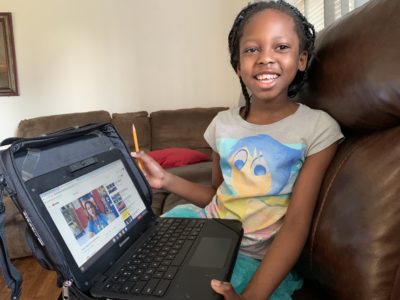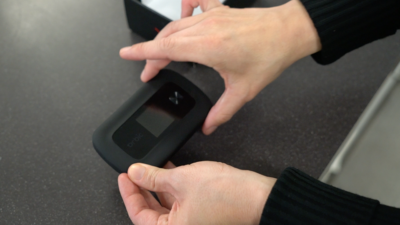Broadband access is probably an issue you’ve heard a lot about this year. From schools transitioning to online learning and organizations going remote, the pandemic has sped up the shift towards digitization. This shift isn’t new, though, and for many North Carolinians, the reality of not having access to reliable internet has been impacting their lives for years.
According to Watauga County Schools superintendent Scott Elliott, up to 25% of families don’t have access to broadband at home in Watauga County. Last year, when school transitioned online, the digital divide became visible in a way like never before. Now, because of a BAND-NC grant, the district is working to meet the needs of some of its most vulnerable families — low income and Latinx families.
“When we made the move to remote instruction last March, we realized the real immediate impact of inequity and internet access in our community. You don’t have to get too far out of the town limits of Boone to find places with no cell phone signal and no access to high speed internet,” said Elliott.
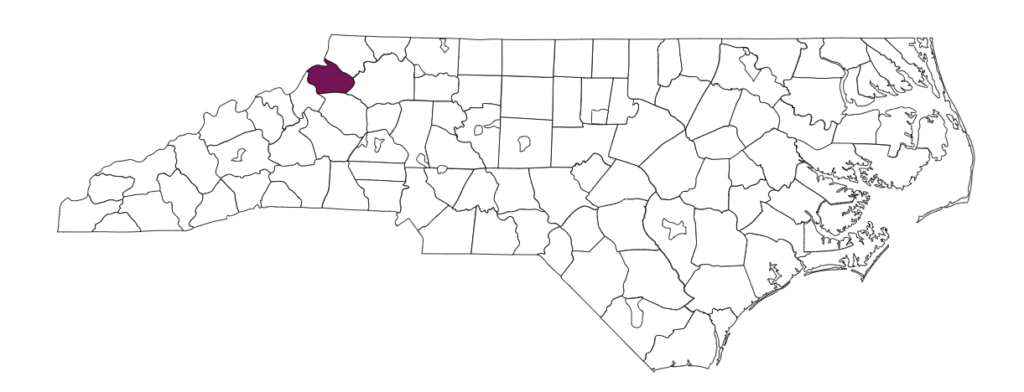
A deep gap
The digital divide spans a deep gap. It’s not just broadband access; it’s digital literacy, too. Like many educational institutions, Watauga County Schools is doing its best to address both with grant funding.
“When the pandemic hit, our parents were really lost, very lost,” said Yolanda Adams, the family resource coordinator for Watauga County Schools. “Some of them didn’t even have emails.”
Addressing an issue like broadband is a challenge for educational institutions. For one, the school district itself can only do so much. Districts and organizations can try and create hubs for access or relieve financial pressures for families trying to get connected (if they have the funding available), but they can’t change broadband infrastructure on their own.

There is renewed hope for rural areas like Watauga, however, with the promise of the budget surplus at the state level and funding for broadband infrastructure in the federal American Rescue Plan Act.
“I think that North Carolina is well positioned right now with the significant budget surpluses that have grown over the last decade to reinvest that public money into public infrastructure, and it will only pay dividends. When we expand any kind of public utility or public infrastructure, it just broadens the base of wealth and quality of life for all citizens in ways that eventually begin to recoup those investments and make them more sustainable over time.”
– Scott Elliott, Superintendent of Watauga County Schools
In the meantime, school and community leaders are doing what they can to meet needs. Many turned to grant funding to address broadband issues this past school year. Watauga County Schools received a “Building a New Digital Economy,” or BAND-NC, grant from the Institute for Emerging Issues at NC State in partnership with the Broadband Infrastructure Office at the NC Department of Information Technology and the John M. Belk Endowment.
Community first
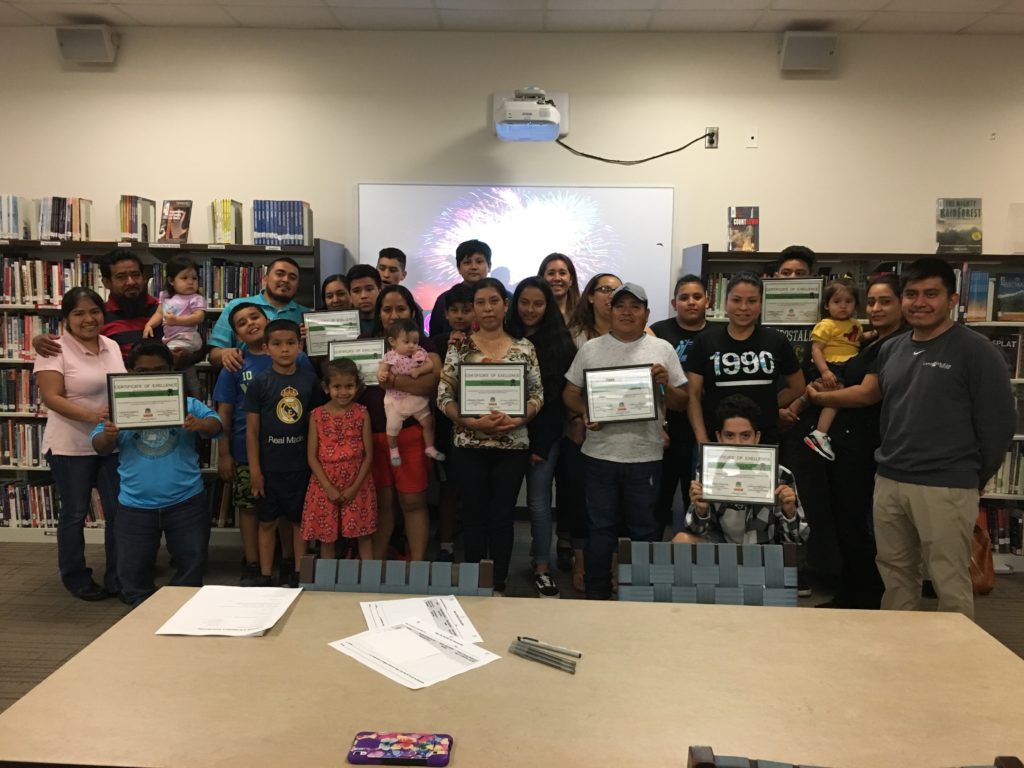
Adams is originally from Colombia but has called Watauga County home for 20 years. She started out as the Spanish interpreter and translator for Watauga County Schools but later moved into the role of family resource coordinator — although, like many in education, she wears a lot of hats. She still interprets and translates on a regular basis in the work that she does.
Adams is a community-first leader. She builds relationships. Her passion for education and compassion for underserved communities informs her day-to-day work. She knew a significant portion of the 25% of families without access to broadband in her county were low income and Latinx. They are many of the families she works with every day.
“My goal was actually to build those bridges of needs that our Latino community had.”
– Yolanda Adams, family resource coordinator for Watauga County Schools
In order to build those bridges, she first had to identify those needs. Adams and Elliott brainstormed and decided the best approach to pinpoint these needs was through a community survey. Two local Watauga High School graduates helped conduct 20 interviews with low-income and Latinx families. From there, they were able to see how they could use their BAND-NC funds most effectively.
Escalating expenses
From the interviews and surveys conducted, WCS decided the most urgent issue facing their families when it came to broadband access was financial pressure. There were numerous families in their community who were barely able to scrape by without internet access before the pandemic. One of those families is the Jaramillos.
Sharon Jaramillo is a mother of four who lives in the Deep Gap area in Watauga County. She has two kids in college, one in high school, and one in middle school. All of her kids live at home. Before the pandemic, her two youngest kids would use the internet at school to do their homework. Her oldest relied on their often spotty satellite connection at the house.
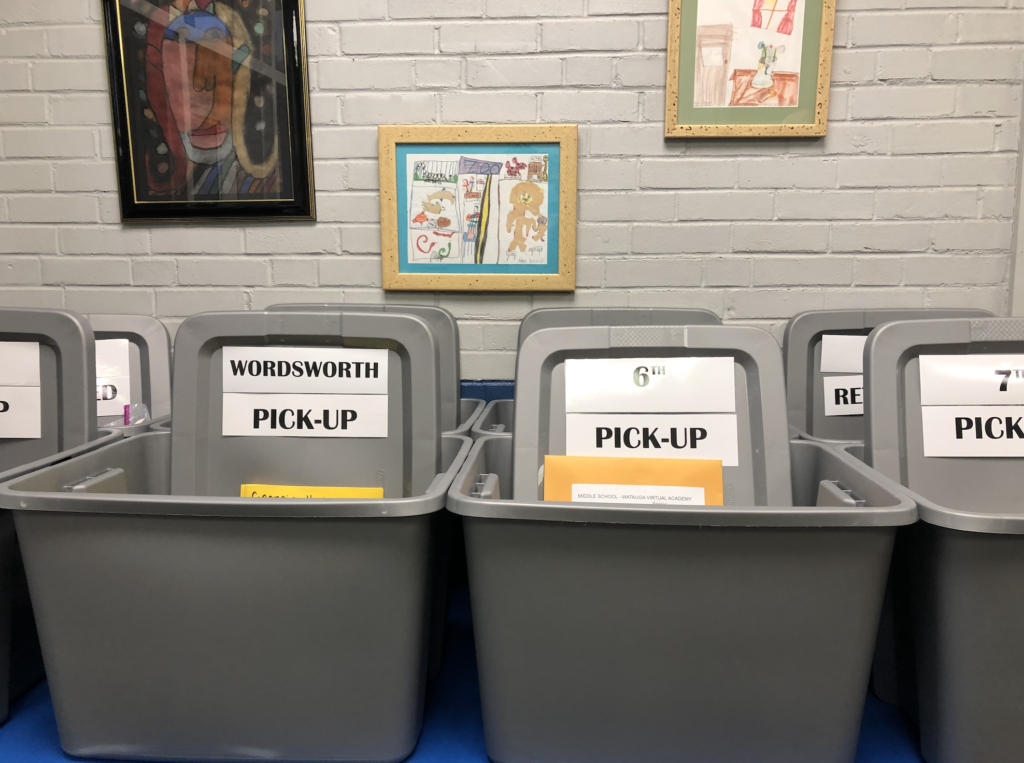
When the pandemic hit and all of her kids needed to be online at the same time at home for school work, she knew she had to figure out another way. Their existing satellite connection simply wasn’t strong enough to have four people online at the same time.
WCS provided the Jaramillos with a hot spot and is paying for the family’s first six months of service.
“The pandemic hit really hard, and there were certain expenses we didn’t have before,” said Jaramillo.
Providing financial assistance is helping relieve some of the burden that comes with broadband access.
The other key component is digital literacy. As Adams mentioned, some parents she worked with had never used email before the pandemic. To address these needs, WCS is collaborating with the public library to start doing workshops on digital literacy. There are a few teaser workshops this May, but the full workshops will happen in late August or early September.
A change in thinking
No one knows when exactly we’ll close the digital divide in North Carolina. To get there, according to Elliott, there needs to be a shift in how we think about broadband.
“Access to the internet is no longer a novelty. It is no longer something recreational or something that is just interesting to have or that adds some ancillary value to our lives,” Elliott said. “It is now a lifeline to the world, to education, to employment, to relationships, to health care. It is now a necessity.”
Elliott sees broadband as a public utility, necessary to thrive in today’s world and even more necessary for students growing up in the digital age.
“We as communities would not tolerate homes without running water, without access to electricity, or even without access to a telephone.”
– Scott Elliott, Superintendent of Watauga County Schools
“If we are going to provide high quality educational opportunities to all of our students and hold all of our students to high standards, then they must also have equitable access to internet and IT infrastructure,” said Elliott.
Editor’s note: The John M Belk Endowment supports the work of EducationNC.
Recommended reading
